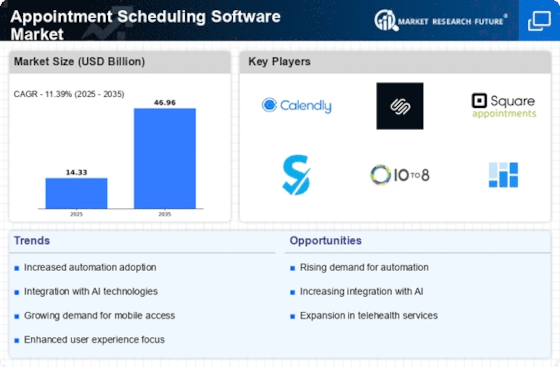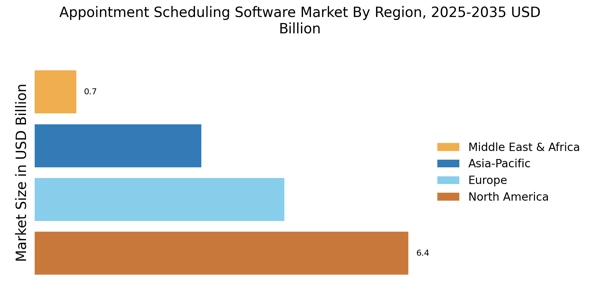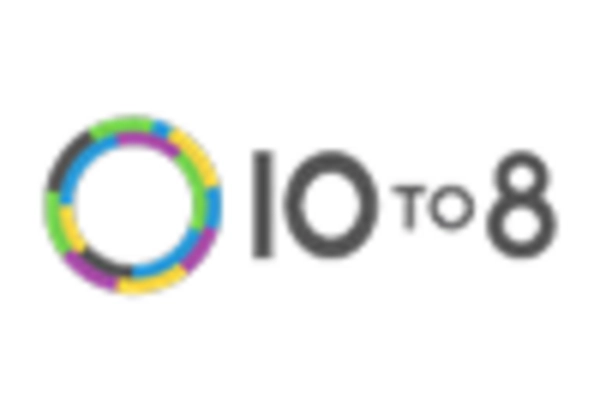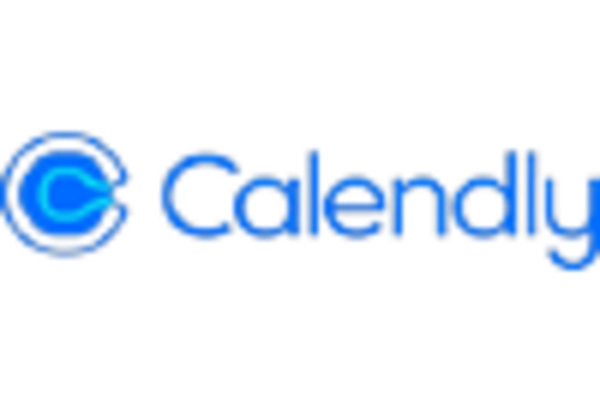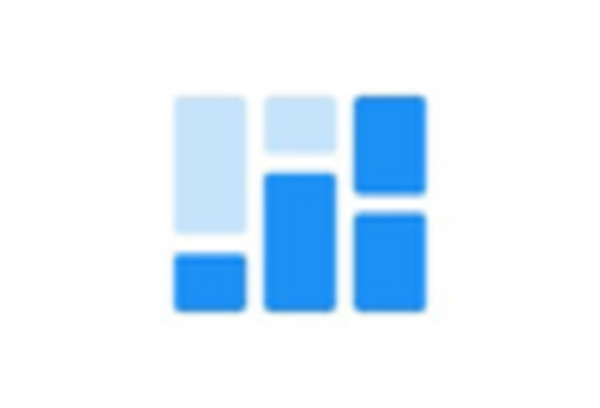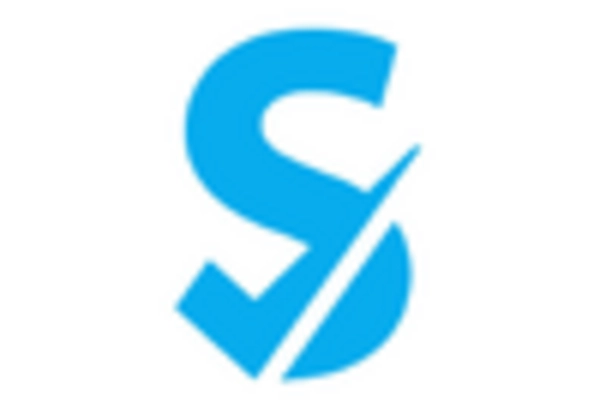The Appointment Scheduling Software Market is currently experiencing notable evolution. This is driven by the increasing demand for efficiency and convenience in managing appointments across various sectors. Organizations are recognizing the value of streamlining their scheduling processes, which not only enhances productivity but also improves customer satisfaction. As businesses continue to adapt to changing consumer expectations, the integration of advanced technologies such as artificial intelligence and machine learning into scheduling solutions appears to be a growing trend. This integration may facilitate more personalized experiences, allowing users to optimize their time management effectively. The appointment scheduling software market is evolving rapidly as businesses adopt appointment management software and advanced software for appointment scheduling to streamline operations, reduce manual errors, and enhance customer engagement.
The growing adoption of automated appointment scheduling software and intelligent appointment scheduling tools is enabling businesses to deliver seamless customer scheduling software experiences, improving efficiency and strengthening customer appointment software capabilities. Organizations are increasingly shifting toward cloud based appointment scheduling software and web based scheduling software solutions, allowing real-time accessibility, scalability, and improved performance compared to traditional scheduling systems. Small and medium enterprises are driving demand for appointment scheduling software for small business operations, with small business appointment software enabling cost-effective scheduling automation and improved client management.
Moreover, the rise of remote work and digital interactions has further propelled the need for robust appointment scheduling tools. Companies are seeking solutions that can seamlessly integrate with existing platforms, ensuring a cohesive user experience. The emphasis on mobile accessibility is also becoming increasingly apparent, as users prefer applications that allow them to manage their schedules on-the-go. This shift towards mobile-friendly solutions indicates a broader trend towards flexibility and adaptability in the Appointment Scheduling Software Market, suggesting that future developments will likely focus on enhancing user experience and accessibility across diverse devices. Large organizations are investing in enterprise appointment scheduling software and integrated business scheduling software platforms to manage complex workflows and high-volume scheduling environments.
Modern platforms increasingly function as a unified business appointment scheduler and calendar appointment software solution, allowing seamless synchronization across workflows and enterprise scheduling ecosystems. Advanced appointment manager software and appointment scheduler software are becoming integral components of digital business infrastructure, supporting automation and cross-platform integration. Demand for appointment scheduling software Canada continues to grow alongside broader North American digital transformation initiatives. Emerging interest in open source appointment scheduling software reflects the need for customization and cost flexibility among technology-driven organizations.
Integration of AI and Automation
The incorporation of artificial intelligence and automation technologies into appointment scheduling software is becoming more prevalent. This trend suggests that businesses are looking to enhance efficiency by automating routine tasks, thereby allowing staff to focus on more strategic activities. AI-driven features may include intelligent reminders, predictive scheduling, and personalized recommendations, which could significantly improve user engagement.
Mobile Accessibility
The demand for mobile-friendly scheduling solutions is on the rise, reflecting a shift in user preferences towards managing appointments via smartphones and tablets. This trend indicates that software developers are prioritizing mobile accessibility, ensuring that users can easily navigate and utilize scheduling tools from various devices, thus enhancing overall convenience.
Integration with Other Business Tools
There is a growing trend towards integrating appointment scheduling software with other business applications, such as customer relationship management (CRM) systems and communication platforms. This integration appears to streamline workflows, allowing for a more cohesive approach to managing customer interactions and appointments, which may ultimately lead to improved operational efficiency.


